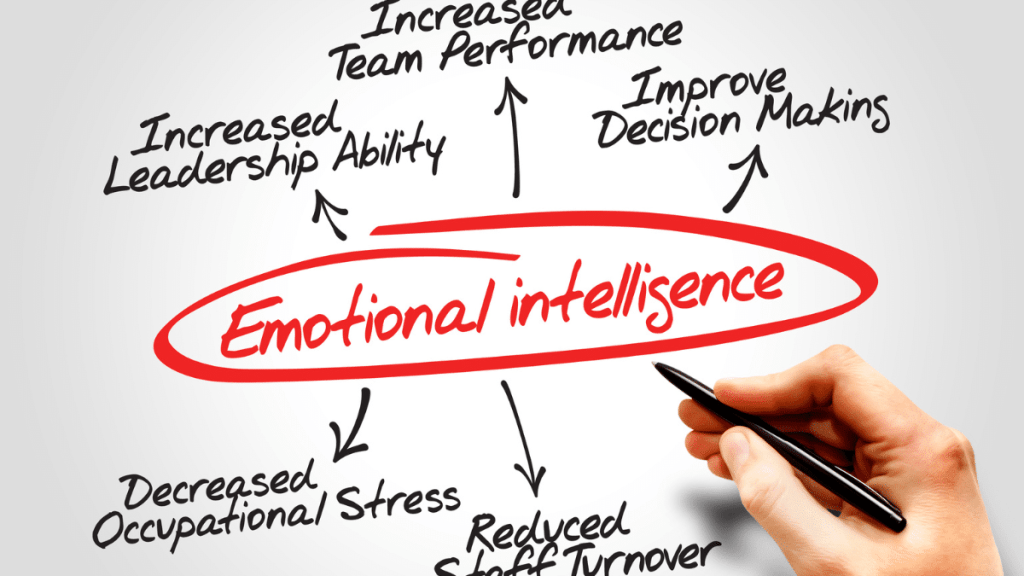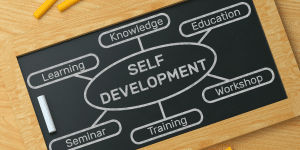As a professional, I have come to realize that emotional intelligence (EI) is essential for success in both personal and professional life. Emotional intelligence refers to the ability to recognise, understand, and manage one’s own emotions and those of others. It is the key to building strong relationships, managing conflicts, and leading effectively. In this article, we will explore the importance of emotional intelligence and learn from inspiring examples of individuals who have mastered this skill.
Introduction to Emotional Intelligence
Emotional intelligence is a concept that has gained significant attention in recent years. It is a set of skills that enables us to navigate the complex world of emotions successfully. There are four main components of emotional intelligence:
- Self-awareness: the ability to recognize and understand our own emotions.
- Self-management: the ability to regulate our emotions and behaviours effectively.
- Social awareness: the ability to understand the emotions and needs of others.
- Relationship management: the ability to build and maintain healthy relationships.
Emotional intelligence is not only essential for success in personal relationships but also in the workplace. It is a key factor in effective leadership, conflict resolution, and stress management.
What are the Benefits of Emotional Intelligence?
Emotional intelligence has numerous benefits for individuals and organizations. It enables individuals to understand and manage their emotions effectively, leading to better mental health and well-being. It also helps individuals build stronger relationships with others, leading to greater job satisfaction and happiness. In the workplace, emotional intelligence is crucial for effective leadership, teamwork, and conflict resolution.
Research has shown that individuals with high emotional intelligence are more successful in their personal and professional lives. They are better able to manage stress, communicate effectively, and collaborate with others. Emotional intelligence is also a key factor in job performance and can lead to better job opportunities and higher salaries.
The Importance of Emotional Intelligence in the Workplace
Emotional intelligence is essential for success in the workplace. It enables individuals to communicate effectively, build strong relationships with colleagues, and lead effectively. In a study conducted by TalentSmart, it was found that emotional intelligence was the strongest predictor of job performance, accounting for 58% of success in all types of jobs.
Leaders with high emotional intelligence are better able to manage their own emotions and those of their team members. They are more effective at motivating and inspiring their team, leading to higher levels of engagement and productivity. They are also better able to manage conflicts and build strong relationships with clients and customers.
Examples of Emotional Intelligence in Leadership
Leaders with high emotional intelligence are inspiring examples of individuals who have mastered this skill. One such example is Satya Nadella, the CEO of Microsoft. Nadella is known for his empathetic leadership style, which has helped to transform Microsoft’s culture and drive innovation. He is also known for his ability to build strong relationships with colleagues and customers.
Another inspiring example of emotional intelligence in leadership is Mary Barra, the CEO of General Motors. Barra is known for her ability to connect with employees and customers on a personal level. She has implemented a culture of transparency and collaboration at General Motors, leading to improved performance and profitability.
Examples of Emotional Intelligence in Personal Relationships
Emotional intelligence is also essential for success in personal relationships. Individuals with high emotional intelligence are better able to understand and manage their own emotions, leading to better communication and stronger relationships. One inspiring example of emotional intelligence in personal relationships is the relationship between Barack and Michelle Obama. The Obamas are known for their strong emotional connection and ability to support each other through difficult times.
Another inspiring example of emotional intelligence in personal relationships is the relationship between Bill and Melinda Gates. The Gates are known for their shared commitment to philanthropy and their ability to work together to achieve their goals. They are also known for their ability to communicate effectively and constructively resolve conflicts.
Emotional Intelligence in Conflict Resolution
Emotional intelligence is essential for effective conflict resolution. Individuals with high emotional intelligence are better able to manage their own emotions and those of others, leading to constructive dialogue and resolution. One inspiring example of emotional intelligence in conflict resolution is the work of Nelson Mandela. Mandela was able to lead South Africa through a period of intense conflict and transition to democracy by using his emotional intelligence to build relationships and foster reconciliation.
Another inspiring example of emotional intelligence in conflict resolution is the work of Malala Yousafzai. Malala is known for her advocacy for girls’ education and her ability to communicate effectively with leaders and policymakers. She has used her emotional intelligence to build bridges and bring people together to achieve her goals.
Emotional Intelligence in Stressful Situations
Emotional intelligence is also essential for managing stress effectively. Individuals with high emotional intelligence are better able to regulate their own emotions and cope with stressful situations. One inspiring example of emotional intelligence in stressful situations is the work of Brené Brown. Brown is known for her research on vulnerability and her ability to share her struggles with others. She has used her emotional intelligence to help others manage stress and build resilience.
Another inspiring example of emotional intelligence in stressful situations is the work of Emma Watson. Watson is known for her advocacy for women’s rights and her ability to handle criticism and negative attention with grace. She has used her emotional intelligence to manage stress and stay focused on her goals.
Emotional Intelligence in Self-Management
Emotional intelligence is also essential for effective self-management. Individuals with high emotional intelligence are better able to regulate their own emotions and behaviours, leading to improved mental health and well-being. One inspiring example of emotional intelligence in self-management is the work of Oprah Winfrey. Winfrey is known for her ability to manage her emotions and stay focused on her goals. She has used her emotional intelligence to build a successful career and inspire others to achieve their dreams.
Another inspiring example of emotional intelligence in self-management is the work of Ellen DeGeneres. DeGeneres is known for her ability to stay positive and maintain a sense of humour in the face of adversity. She has used her emotional intelligence to manage stress and stay grounded in her values.
How to Improve Your Emotional Intelligence
If you want to improve your emotional intelligence, there are several steps you can take. First, focus on increasing your self-awareness by paying attention to your emotions and the triggers that cause them. Second, practice self-management by regulating your emotions and behaviours effectively. Third, work on improving your social awareness by understanding the emotions and needs of others. Finally, focus on building strong relationships and practising effective relationship management.
Quick Tip: 5 Top Books on Emotional Intelligence
If you want to learn more about emotional intelligence, there are several excellent books to consider. Here are five top books on emotional intelligence:
- Emotional Intelligence 2.0 by Travis Bradberry and Jean Greaves
- The Emotional Life of Your Brain by Richard J. Davidson and Sharon Begley
- The Power of Emotional Intelligence by Dan Goleman
- The Art of Possibility by Rosamund Stone Zander and Benjamin Zander
- Daring Greatly by Brené Brown
Conclusion: Why Emotional Intelligence is Key to Success
Emotional intelligence is essential for success in both personal and professional life. It enables individuals to understand and manage their own emotions and those of others, leading to stronger relationships, effective leadership, and improved mental health and well-being. By learning from inspiring examples of emotional intelligence, we can improve our skills and achieve greater success in all areas of life.
We encourage you to take the time to develop your emotional intelligence and practice the skills that will enable you to succeed in all areas of life. Whether you are a leader, a team member, or a friend, emotional intelligence is the key to building strong relationships and achieving your goals.












